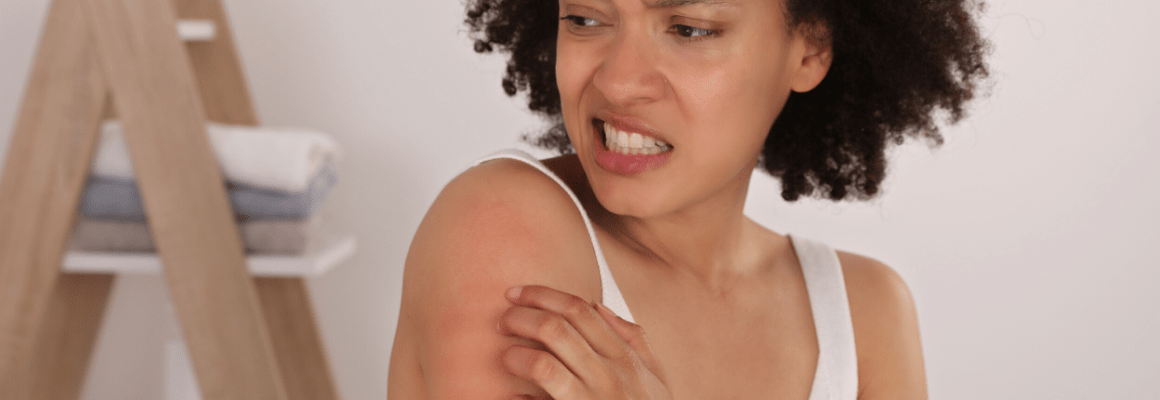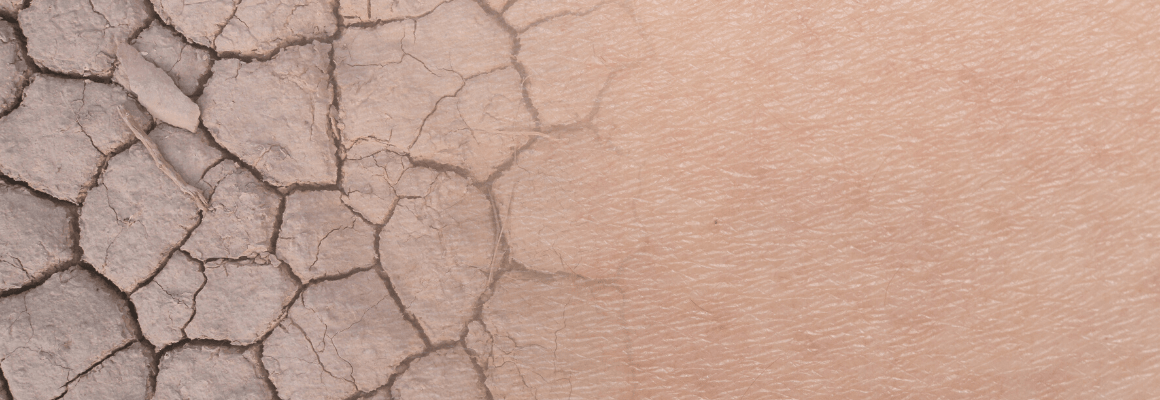Eczema, an inflammatory and itchy skin condition, affects around 10-20% of the population. Characterized by red, dry, and flaky skin, there are actually several different types of eczema. Typically, eczema affects the hands, back, and creases of elbows and knees but it can also develop in other places on the body - including inside the ear canal. Read on for more information on causes, symptoms, and treatment options for ear canal eczema.
Please keep in mind that although these tips can relieve eczema, we are in no way medical professionals. If you’re experiencing severe eczema symptoms like an infection, it is best to seek medical advice immediately.
What does Ear Canal Eczema Look Like?
If you suffer from eczema of the ear canal, you may notice dry, flaky skin or red patches. These can develop in or around your ears, as well as in the ear canal which runs from your eardrum to your ear’s opening. You may notice a clear discharge from your ear, as well as inflammation or swelling. As itchiness is a prime symptom of any type of eczema, in this case, you’ll experience itchiness in or around the ear canal. Due to low-humidity, your symptoms may worsen during the winter months, especially as indoor heating makes the air drier than usual.
While most people will experience mild to moderate symptoms, scratching can lead to infected skin in the ear canal. The first symptom of bacterial infection is severe ear pain. A sign of fungal ear canal infection is intense itching as opposed to pain.
Causes of Ear Canal Eczema
There are two different types of ear canal eczema that have different causes.
Contact dermatitis: This eczema of the ear canal is an allergic reaction. It’s triggered in response to contact with allergens. In the case of ear eczema, common triggers can include numerous beauty products, such as hairsprays, lotions, and hair dye, as well as earrings containing nickel. Cell phones and headphones can also cause an allergic reaction.
Aural eczematoid dermatitis: This eczema of the ear canal can occur spontaneously in people who already suffer from different kinds of dermatitis conditions like seborrheic dermatitis and psoriasis. Skin irritation or cracking can make the skin more vulnerable to bacterial or fungal infection.
Treating Ear Canal Eczema
The first step to treating ear canal eczema is to avoid triggers. The tricky part is identifying what your triggers are. Each person is unique and what affects one person may not necessarily affect you. To determine your allergic triggers, trial and error may be needed. You should also avoid sticking anything in your ear, no matter how harmless they may seem. This includes cotton swabs and water.
Treat your ears with our Organic Manuka Skin Soothing Cream. This natural, oil-based balm is gentle enough for even the most sensitive areas of your body. All six ingredients were handpicked for their known soothing abilities. Enjoy the antibacterial and anti-inflammatory properties of Manuka honey that’s sure to calm your skin without any burning or stinging.
When cleaning your ears to prevent infection, make sure you never insert anything into the ear canal. This can damage skin or the ear tissue. Simply use a damp towel to gently wash around the ear. Always use lukewarm water as hot water tends to further dry out the skin. Finally, if you are using soap, make sure you use a eczema soap.
If you are experiencing severe symptoms or infection, be sure to speak to your doctor or physician as soon as possible.
References:
https://www.healthline.com/health/ear-eczema



